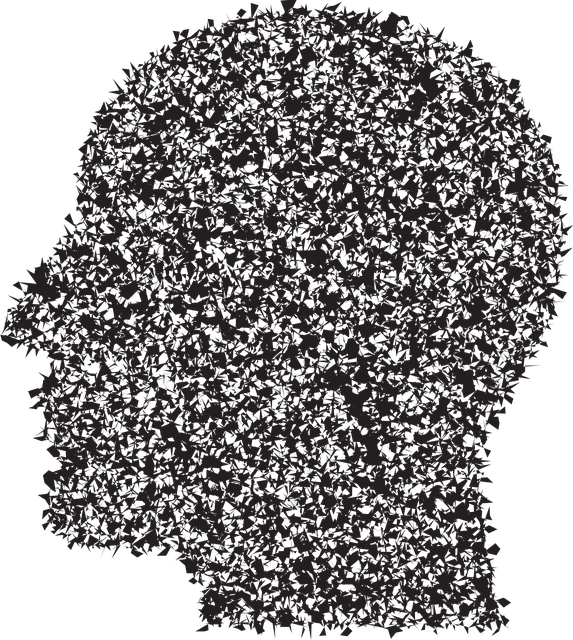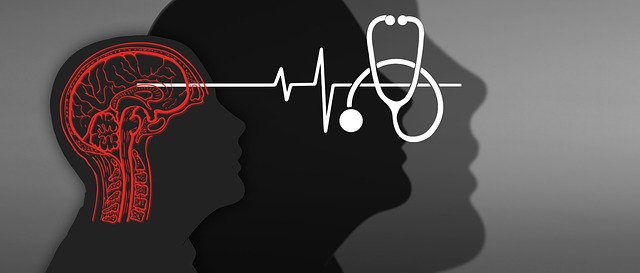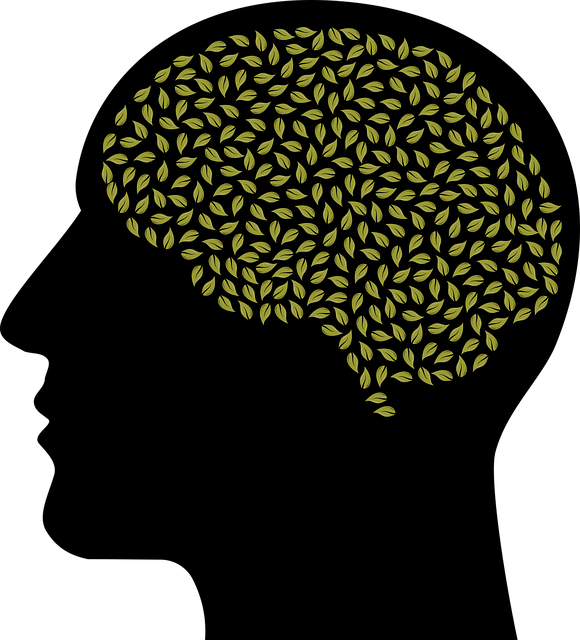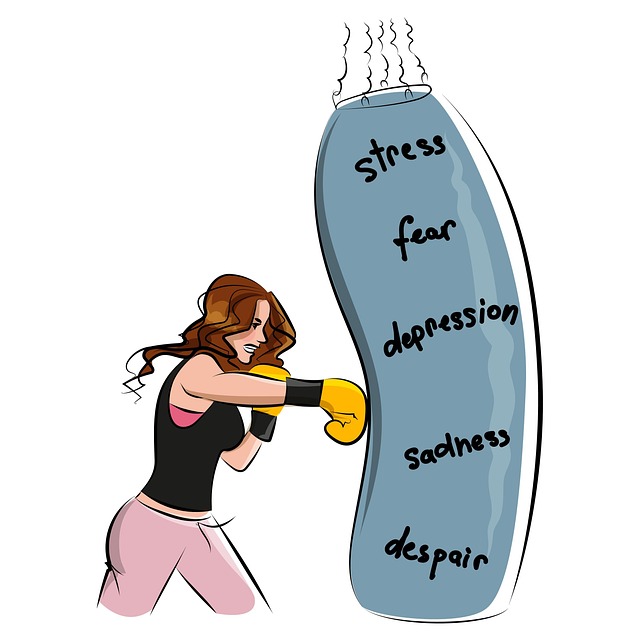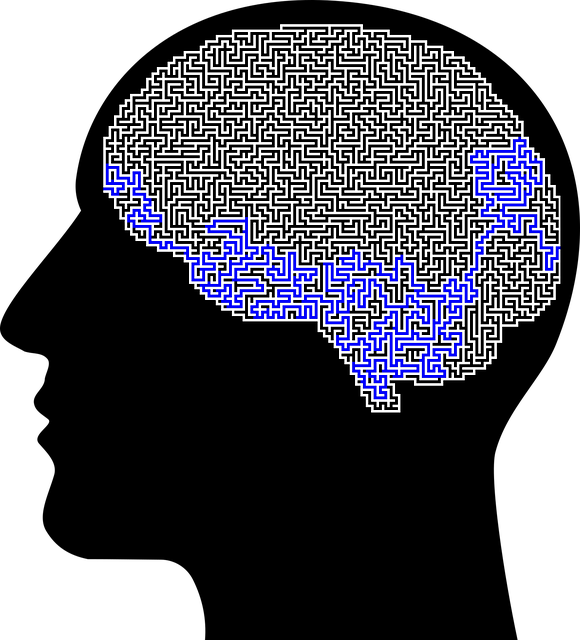Arvada Dialectical Behavioral Therapy (DBT) prioritizes building resilience through exercises in mindfulness, cognitive reframing, and emotion regulation, enhancing coping strategies and mental fortitude. The RFM Model, a core component of DBT, focuses on Resources, Factors, and Mastery to confront life challenges with adaptability. Tailored skills training and cultural sensitivity support trauma services, improving resilience. DBT techniques, recognized by Stress Management Workshops Organization, empower individuals to manage emotions during stress, fostering calmness and clarity in today's fast-paced world. Integrating Resilience, Flexibility, and Mindfulness (RFM) into DBT enhances client mood management through adaptive coping strategies and improved emotional regulation for better overall well-being.
Resilience is a vital cornerstone of mental well-being, enabling individuals to navigate life’s challenges and foster a sense of empowerment. In this article, we explore the powerful combination of Resilience-focused Models (RFM) and exercises to build mental toughness. We delve into the RFM framework, its integration with Arvada Dialectical Behavioral Therapy (DBT), and practical DBT techniques for enhancing coping skills. By understanding these strategies, you’ll uncover ways to support individuals in cultivating resilience and improving their overall therapeutic journey.
- Understanding Resilience: The Cornerstone of Well-being
- RFM Model: A Framework for Enhancing Resilience and Coping Skills
- Practical Exercises for Building Mental Toughness with DBT Techniques
- Integrating RFM into Arvada Dialectical Behavioral Therapy Practice
Understanding Resilience: The Cornerstone of Well-being

Resilience is a fundamental aspect of well-being, enabling individuals to navigate life’s challenges and adapt to change. It’s about bouncing back from setbacks, finding strength in adversity, and maintaining a sense of hope and optimism. Understanding resilience is crucial, especially within the context of Arvada Dialectical Behavioral Therapy (DBT), which prioritizes self-care practices and mental health awareness. DBT recognizes that building resilience is an essential skill for fostering positive thinking and overall emotional well-being.
By participating in exercises designed to enhance resilience, individuals can develop a deeper sense of coping strategies, improve their ability to manage stress, and strengthen their mental fortitude. These exercises often include various techniques such as mindfulness practices, cognitive reframing, and emotion regulation skills, all of which contribute to an individual’s capacity to overcome obstacles and maintain a positive outlook. This, in turn, leads to improved mental health awareness and a stronger foundation for overall well-being.
RFM Model: A Framework for Enhancing Resilience and Coping Skills

The RFM Model, or Resilience and Coping Model, serves as a powerful framework for individuals seeking to enhance their resilience and develop effective coping strategies. This model, often utilized in Arvada Dialectical Behavioral Therapy (DBT), focuses on three key components: Resources, Factors, and Mastery. By understanding and strengthening these areas, individuals can better navigate life’s challenges and build mental fortitude.
Resources refer to the internal and external supports that contribute to an individual’s well-being, including coping skills, social connections, and positive self-regard. Factors involve triggers or stressors that can be managed or mitigated, such as conflict, financial strain, or health issues. Mastery relates to the ability to regulate emotions, make thoughtful decisions, and adapt effectively to changing circumstances. Through tailored exercises and strategies, the RFM Model equips individuals with the tools needed to foster cultural sensitivity in mental healthcare practice, engage in trauma support services, and ultimately improve their overall resilience, especially when supported by a competent healthcare provider offering cultural competency training.
Practical Exercises for Building Mental Toughness with DBT Techniques

Building mental toughness is a key aspect of resilience, and Dialectical Behavioral Therapy (DBT) offers practical exercises to help individuals navigate life’s challenges with greater ease. In Arvada, Dialectical Behavioral Therapy therapy sessions often incorporate DBT skills training, focusing on mindfulness, distress tolerance, emotion regulation, and interpersonal effectiveness. These techniques empower individuals to manage their emotions during stressful situations, fostering a sense of control and resilience.
The Stress Management Workshops Organization recognizes the importance of these skills, especially in today’s fast-paced world. By participating in DBT workshops or Healthcare Provider Cultural Competency Training, individuals can learn to respond to stressors adaptively rather than reacting impulsively. This proactive approach not only enhances overall well-being but also prepares people to face life’s uncertainties with a sense of calm and clarity, making them more resilient in the long run.
Integrating RFM into Arvada Dialectical Behavioral Therapy Practice

Incorporating RFM (Resilience, Flexibility, and Mindfulness) into Arvada Dialectical Behavioral Therapy (DBT) practice offers a comprehensive approach to fostering inner strength development and mood management. DBT, renowned for its effectiveness in treating complex emotional disorders, leverages RFM as a powerful toolkit to enhance client resilience. By integrating mindfulness meditation techniques with RFM exercises, therapists in Arvada can equip individuals with the skills to navigate life’s challenges more effectively.
This synergistic combination enables clients to build adaptive coping strategies, enhancing their ability to manage intense emotions and reduce distressing behaviors. Through regular practice, individuals learn to cultivate mindfulness, fostering a deeper awareness of their thoughts and feelings without judgment. This increased self-awareness, coupled with resilience-building exercises, empowers clients to respond to triggers more flexibly, leading to improved emotional regulation and overall well-being.
The integration of Resilient Factor Model (RFM) and resilience-building exercises within Arvada Dialectical Behavioral Therapy (DBT) practice offers a comprehensive approach to enhancing well-being. By understanding the cornerstone of resilience, leveraging the RFM model as a framework, employing practical DBT techniques, and tailoring these strategies to individual needs, therapists can empower clients to develop mental toughness. This holistic method not only supports those in Arvada DBT therapy but also provides valuable tools for navigating life’s challenges with greater ease and resilience.

